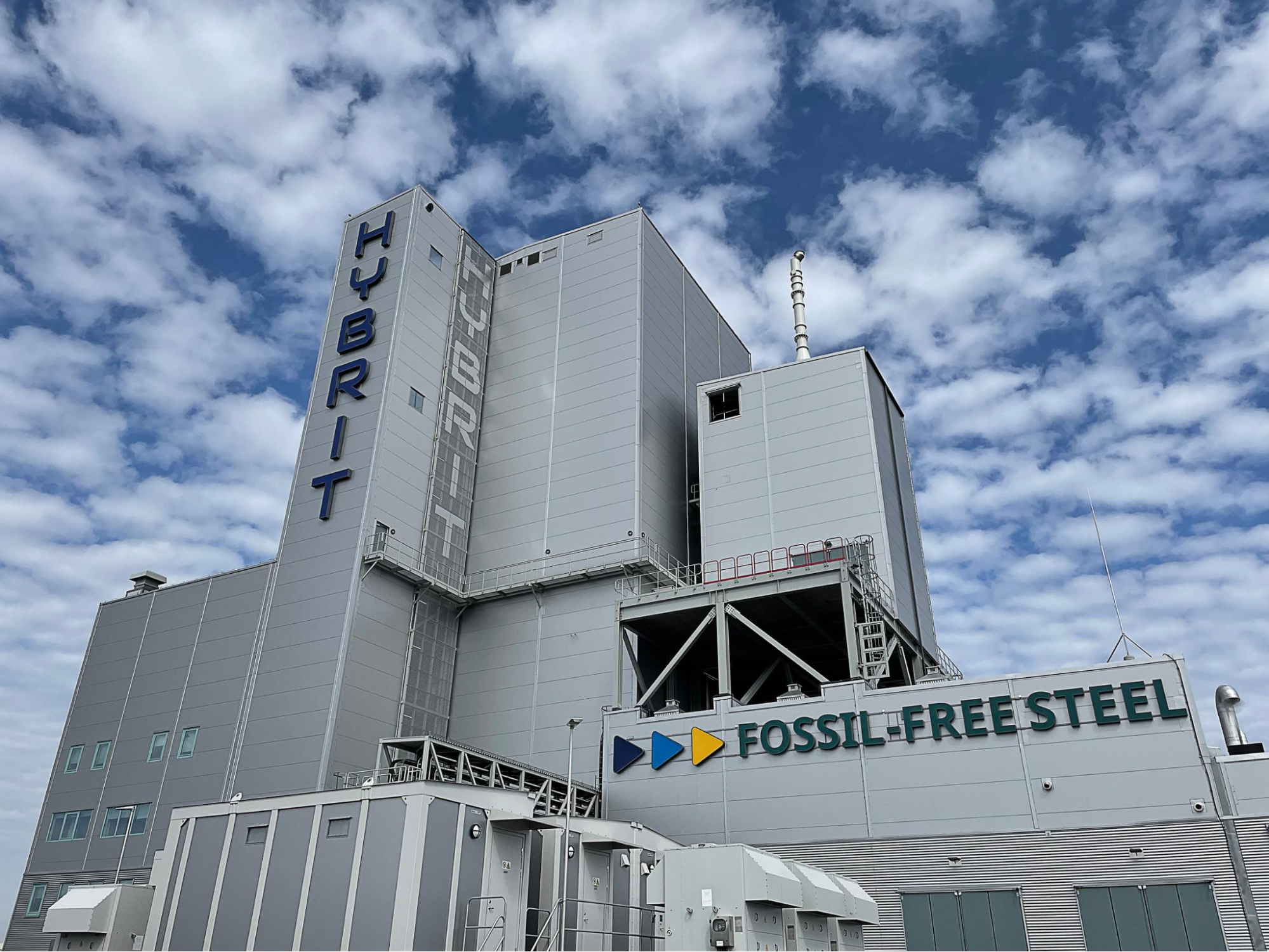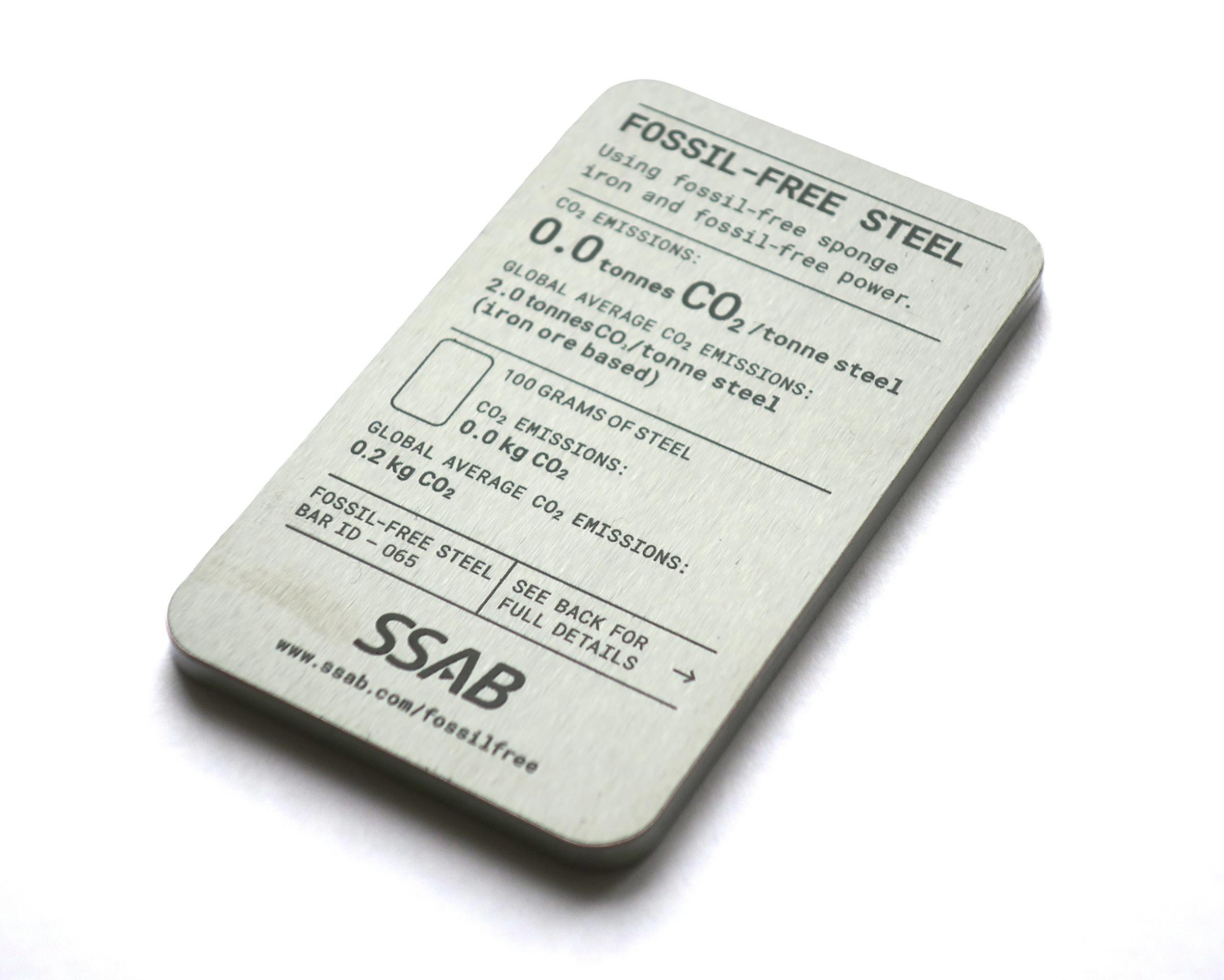
Steel manufacturing is a critical industry, creating the building blocks for so much of the world. But the steel industry also comes with considerable impacts, producing as much as seven percent of global CO2 emissions, thereby contributing significantly to global climate change. SSAB has found a cleaner way to produce steel without fossil fuels and massive carbon emissions. The byproduct of its process: water.
SSAB is highlighting the cleanliness of its steelmaking process by bottling some of the water , calling it Pure Waste (normally it is recycled to produce new hydrogen). SSAB Chief Technology Officer Martin Pei even took a bottle with him to COP27 to take a drink and demonstrate the paradigm shift SSAB’s technology presents.
To create its fossil-free steel, SSAB’s HYBRIT technology uses hydrogen to reduce iron ore into sponge iron with significantly improved properties and quality. Hydrogen replaces the carbon and coke that would normally have been used in this process, so instead of seeing CO2 as a byproduct, SSAB just sees water as a byproduct. That water isn’t even a waste product, as it will be used to generate more hydrogen.
This carbon-free direct reduced iron is highly metallized and has excellent mechanical and aging properties, and it’s also ready for carbon-free processing into steel in an electrical arc furnace power with fossil-free electricity, continuing the manufacturing process in a fossil fuel-free manner.

While SSAB plans to produce steel using its HYBRIT technology, it alone can’t reduce the steel industry's significant carbon emissions. SSAB CTO Pei explains:
”The world is at a precipice of climate change. We have proven that there is a functioning technology to make fossil-free steel. But we cannot change the entire industry ourselves. Others need to act quickly also to keep the Paris Agreement goals alive. I hope that our colleagues in the industry will seize this chance to transform our sector from a climate villain to a climate hero,”
To cut down on the steel industry’s carbon emissions, SSAB needs steel buyers to demand fossil-free steel, and it needs other manufacturers in the industry to reduce their own emissions.
To this end, SSAB has filed for a portfolio of patents for HYBRIT, making the technology available to the world. SSAB has also created a knowledge sharing platform around HYBRIT in the aims of inspiring and encouraging others in the industry to adopt virtually emissions-free processes.
To learn more about SSAB’s process, you can check out its seminar at the Hydrogen, Iron & Steelmaking forum or head over to the Pure Waste campaign page.
Sign up for the Live Science daily newsletter now
Get the world’s most fascinating discoveries delivered straight to your inbox.
